He is one of the world's leading voices on urban warfare… and is sometime nicknamed the British Jack Ryan.
Stuart Lyle has been carrying out his work at the Defence Science and Technology Laboratory (Dstl) for 11 years and has travelled the world to share learning with other experts and give our Armed Forces an operational edge.
Delivering critical analysis and research from the lab to frontline troops in the British Army and Royal Marines he and his team are helping shape the future of the military.
The dad-of-two said:
The most exciting thing about my role is actually seeing some of the impact our work has within defence.
There are very tangible examples of where the recommendations that we've made in Dstl or the research that we've done has shaped the way that the land forces conduct business, how they structure themselves, or the equipment they get.
I work in a close-knit team that get on really well and are all working on multiple projects at any given moment. We have different expertise throughout the group.
No one person has all the expertise in one area so while I'm the urban guy I rely on, for example, artillery people to inform the work I do.
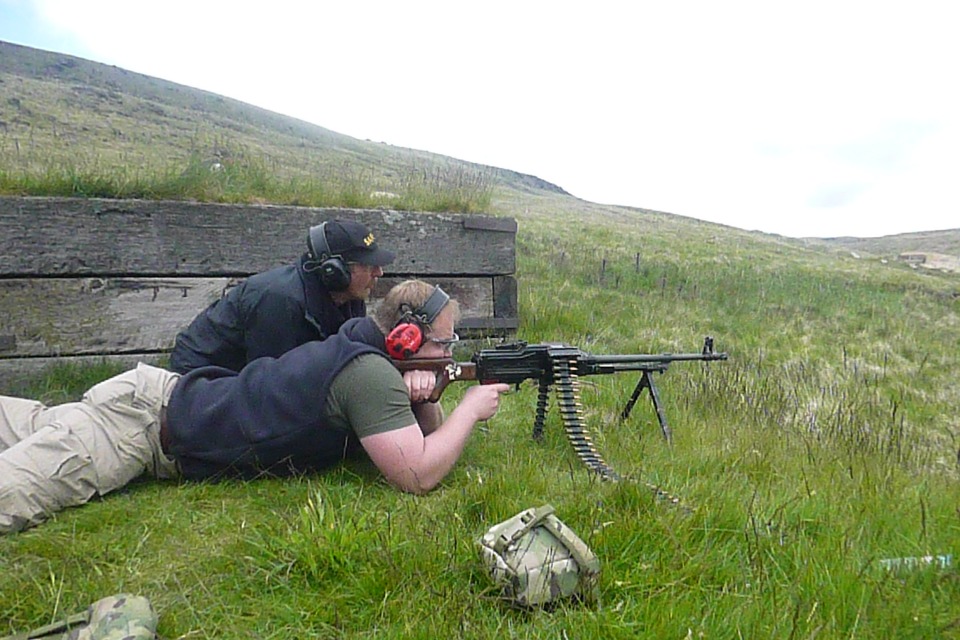
Stuart Lyle on exercise
While he can't talk about everything he works on, a recent project he was proud of was the role the team played in designing and testing the Urban Phalanx platoon concept.
This was based on Dstl research to improve the operational effectiveness and survivability of dismounted infantry in urban combat.
A new configuration of infantry units was proposed to meet the unique challenges of urban warfare to improve situational awareness, reduce the pressures on junior commanders and increase their ability to use assets at their disposal.
The proposed new formation of the unit, which included an additional role, has now been taken forward by the British Army's Experimentation and Trials Group as the foundation for their Next Generation Combat Team. This has been subject to extensive live trials and will be showcased in the US.
This recommendation may end up shaping the way the armed forces approach urban warfare.
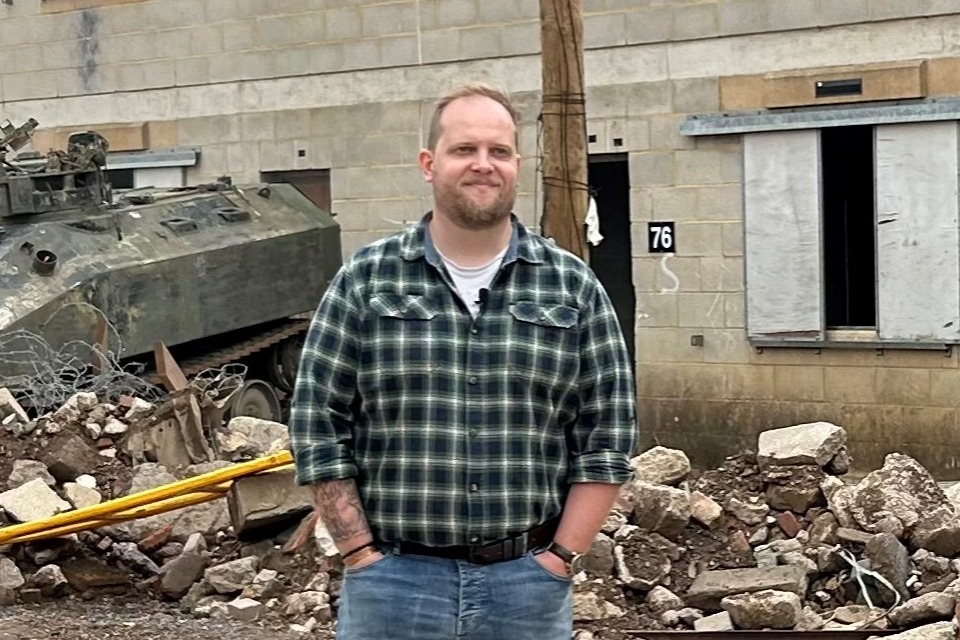
Stuart Lyle at Copehill Down
Stuart added:
Urban warfare is an important subject for defence to try to grapple with. Urban terrain is the most complex environment the military will operate in.
To understand the complexities of that, the way it is going to change how you conduct your tactics and the way you plan your operations is critical.
Helping the army understand the challenges and how best to overcome them is really important.
Originally from Northern Ireland, some US colleagues nicknamed him the British Jack Ryan as his career path has, in many ways, mirrored that of the fictional character.
Like the hero of the Tom Clancy novels Stuart started his career as a trainee officer in the marines - in his case the Royal Marines - before a back injury forced him to seek a new career.
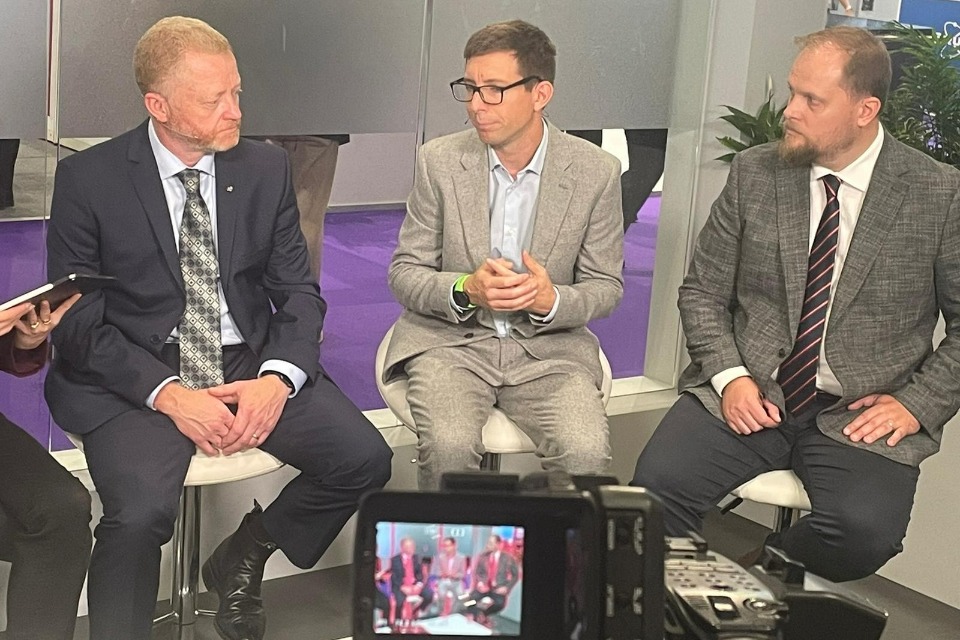
Stuart Lyle being interviewed at DSEI with Dstl colleagues
While Jack Ryan became an intelligence analyst Stuart became a Defence analyst.
Despite this difference, he has managed to achieve almost as much travel with his work which has taken him from Tokyo to LA, Oslo to Muscat and many other far-flung cities in between.
Delegates from Austria, Chile, Bermuda, Saudi Arabia, Jordan, Australia, Germany, France, Canada and others have all visited to attend lectures by Stuart.
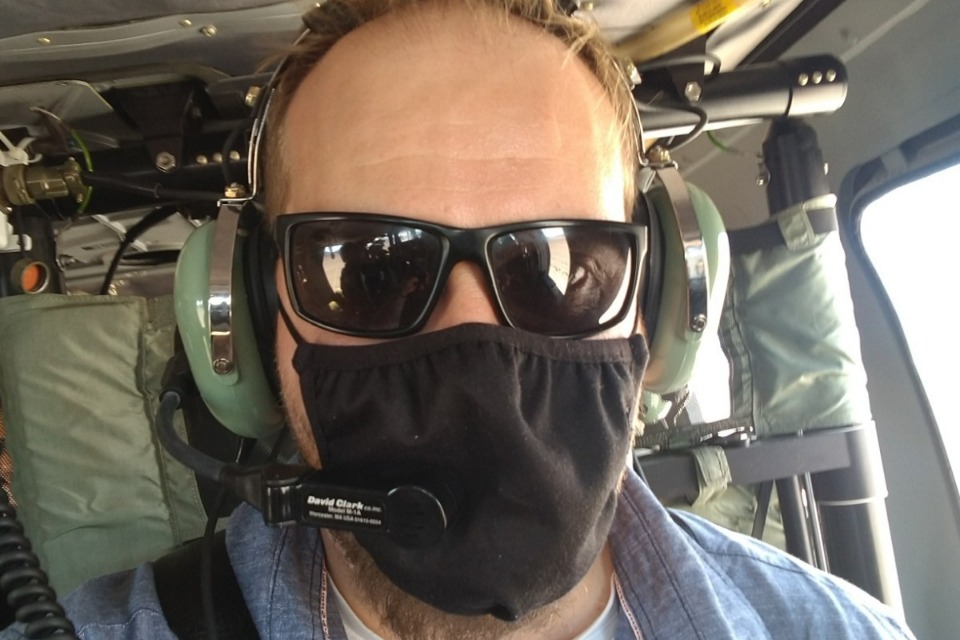
Stuart Lyle in a helicopter above LA
He said:
The coolest thing I've done in Dstl is definitely last year, I got to go over to Los Angeles and I got to teach on the US Army's Urban Operations Planners' course.
So I got to fly out to LA and deliver some of our research to the course and explain how that would impact on military operations which culminated in flying around Los Angeles in a Black Hawk helicopter delivering a lesson on urban terrain zones.
Outside of work he relaxes by playing wargames and going camping. Another skill that many don't know about is his prowess as a baker.
This hobby started with him making novelty birthday cakes for his children and evolved into cakes for friends and eventually even a wedding cake.
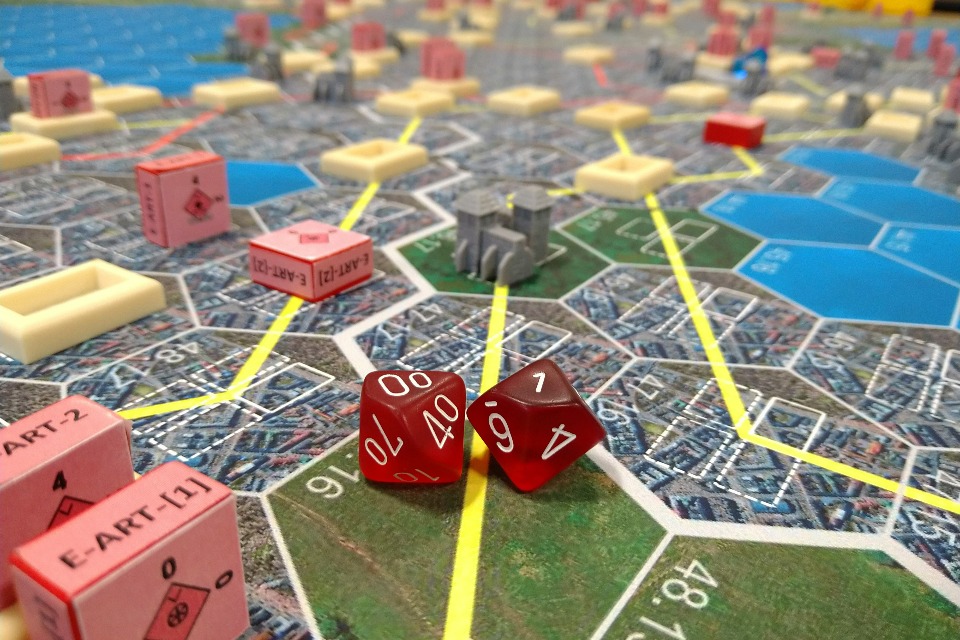
Wargaming teach vital skills
He added:
Once I got into Dstl I realised it was actually a much bigger organisation and has much greater influence than I knew of.
Being in it now for more than a decade the level of impact Dstl has across Defence is phenomenal. We really do get to go in there and steer the ship.
We are, in many ways, the partner behind the scenes. So while the military is the upfront face of Defence, there is generally speaking a Dstl hand in whatever Defence is doing.






